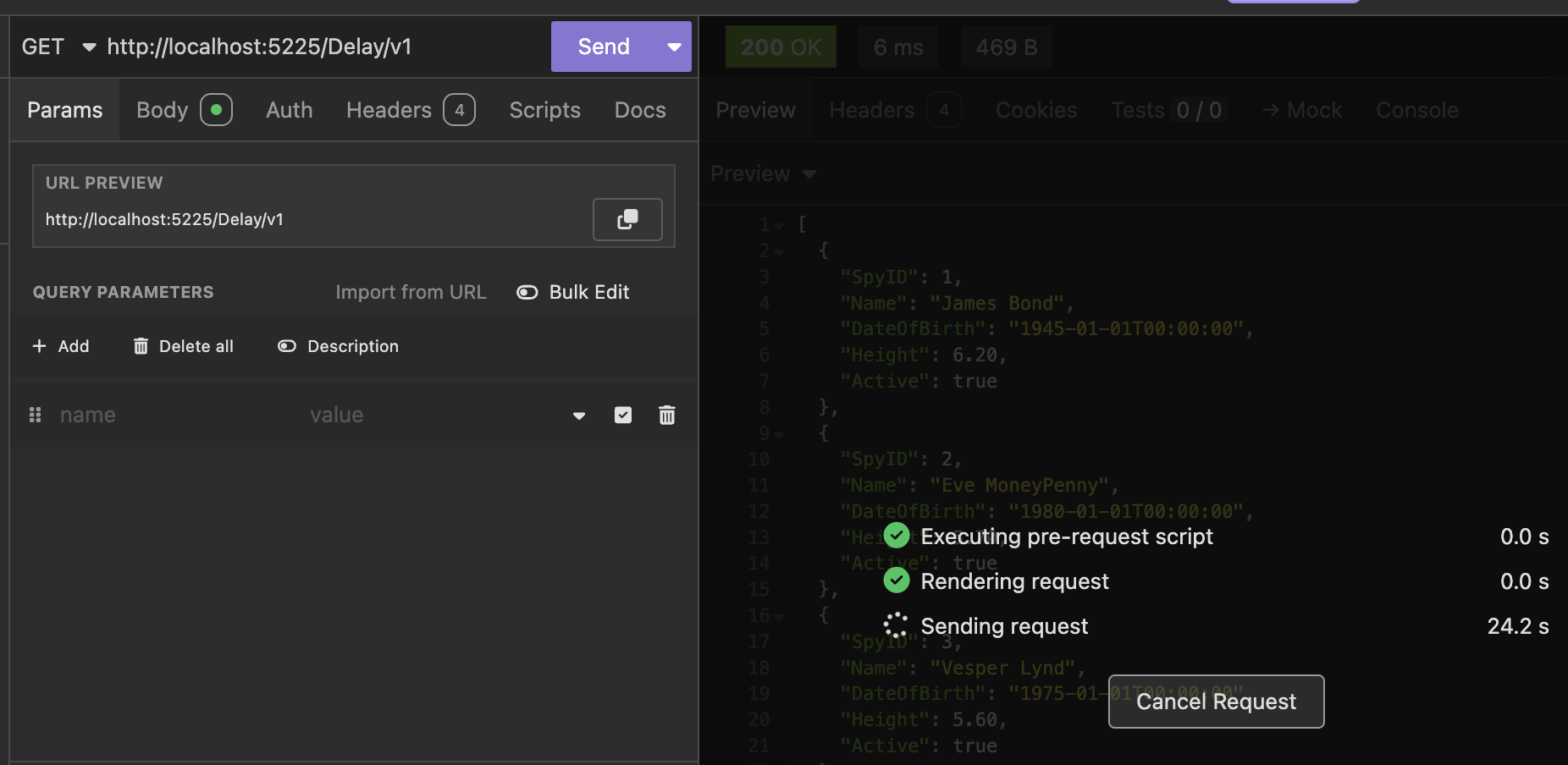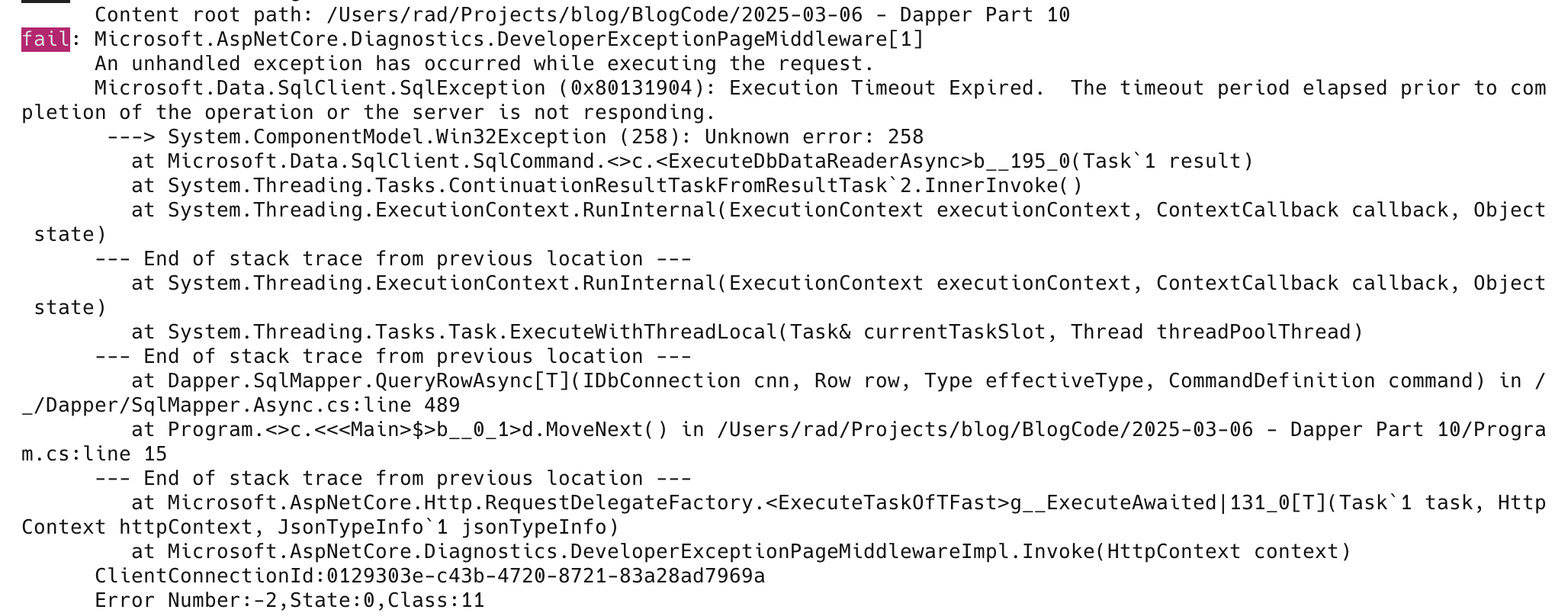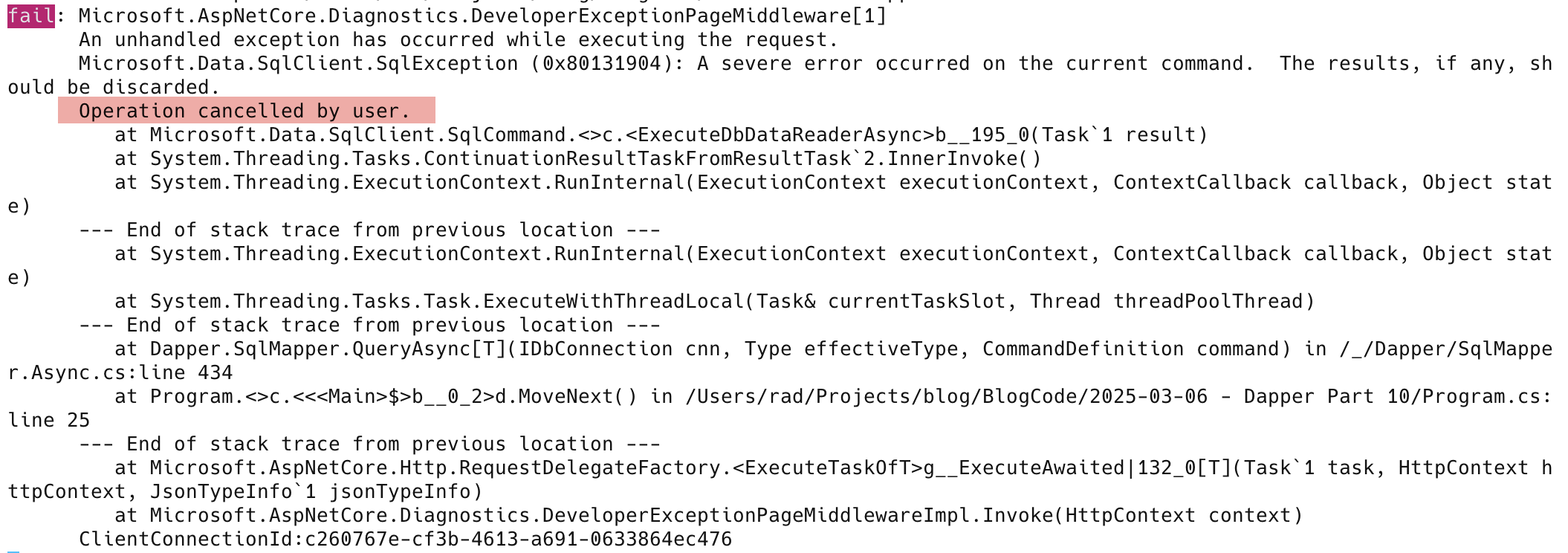Dapper Part 10 - Handling Cancellations
[C#, .NET, Dapper, Database]
This is Part 10 of a series on using Dapper to simplify data access with ADO.NET
- Simpler .NET Data Access With Dapper - Part 1
- Dapper Part 2 - Querying The Database
- Dapper Part 3 - Executing Queries
- Dapper Part 4 - Passing Data To And From The Database
- Dapper Part 5 - Passing Data In Bulk To The Database
- Dapper Part 6 - Returning Multiple Sets Of Results
- Dapper Part 7 - Adding DateOnly & TimeOnly Support
- Dapper Part 8 - Controlling Database Timeouts
- Dapper Part 9 - Using Dynamic Types
- Dapper Part 10 - Handling Cancellations (This Post)
- Dapper Part 11 - Using Inheritance
- Dapper Part 12 - Alternative Bulk Insert Technique
- Dapper Part 13 - Using Transactions
- Dapper Part 14 - Multithreading
- Dapper Part 15 - Using The IN Clause
- Dapper Part 16 - Consideration When Passing Parameters
In our last post, we looked at how to use Dapper to manage dynamic types in scenarios where we cannot or don’t want to use strong types.
In this post, we will look at a scenario where we need to do some cancellations.
Let us take the following endpoint that gets the top 10 Spy entities but with a delay.
app.MapGet("/Delay/v1", async (SqlConnection cn) =>
{
var result = await cn.QueryAsync<Spy>("[Spies.GetAllWithDelay]");
return result;
});
Let us make a request, but cancel it before it is completed.

Our screen shows the following:

However, a curious thing happens after the 30th second:

We get a timeout error!
Why did that happen, given that we canceled the request?
What, in fact, happened here is that what got canceled was waiting for the request to be completed. The database query kept going until it hit a timeout and threw an exception.
This is very wasteful, given the requesting client has clearly indicated that they are no longer interested in getting a response by canceling. Therefore, there is no point in continuing to work in such a dispensation.
So how do we fix this?
We take advantage of the fact that ASP.NET, Dapper, and the underlying DbConnection (SqlConnection) support cancellation tokens, so we can inject one into our endpoint and pass it around.
app.MapGet("/Delay/v2", async (SqlConnection cn, CancellationToken token) =>
{
// Create a command definition object, passing our cancellation token
var command = new CommandDefinition("[Spies.GetAllWithDelay]", cancellationToken: token);
// Execute the command
var result = await cn.QueryAsync<Spy>(command);
return result;
});
If we cancel a request to this endpoint, we immediately see the following in the logs:

This time, we get an explicit exception from a cancellation.
In this manner, we avoid wasting resources executing a query the client has canceled.
But having said that, it is important to think about what is being canceled and the impact. Our query is a SELECT query, so cancellation will have no impact. But what if it was a complex insert query with multiple steps? What would canceling before completion mean to the state of the system? Whether to allow canceling at all and when to do so is subjective to the circumstances of the problem domain.
Cancellation is not unique to Dapper - the underlying ADO.NET providers are the ones that expose the cancellation ability.
TLDR
We can pass a CancellationToken to Dapper to propagate cancellations from client requests to the database.
The code is in my GitHub.
Happy hacking!